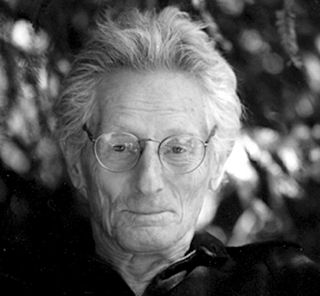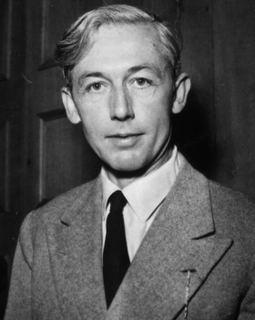A Quote by Ralph Waldo Emerson
Really, all things and persons are related to us, but according to our nature, they act on us not at once, but in succession, andwe are made aware of their presence one at a time. All persons, all things which we have known, are here present, and many more than we see; the world is full.
Related Quotes
There is scarcely an occurrence in nature which, happening at a certain time, is not looked upon by some persons as a prognosticator either of good or evil. The latter are in the greatest number, so much more ingenious are we in tormenting ourselves than in discovering reasons for enjoyment in the things that surround us.
Time, which measures everything in our idea, and is often deficient to our schemes, is to nature endless and as nothing; it cannot limit that by which alone it had existence; and as the natural course of time, which to us seems infinite, cannot be bounded by any operation that may have an end, the progress of things upon this globe, that is, the course of nature, cannot be limited by time, which must proceed in a continual succession.
In this external world, which is full of finite things, it is impossible to see and find the Infinite. The Infinite must be sought in that alone which is infinite, and the only thing infinite about us is that which is within us, our own soul. Neither the body, nor the mind, nor even our thoughts, nor the world we see around us, is infinite.
I’m aware of the- the fact that people elsewhere in the world think differently from us. I can sort of see us, us Americans with their eyes. And not all that I see is- is attractive. I see an insular people who are- are insensitive to foreign sensibilities, who are lazy, obese, complacent and increasingly perplexed as to why we are losing our place in the world to people who are more dynamic than us and more disciplined
Things and persons appear to us according to the light we throw upon them from our own minds. How unconsciously we judge others by the light that is within ourselves, condemning or approving them by our own conception of right and wrong, honor and dishonor! We show by our judgment just what the light within us is.
A writer - and, I believe, generally all persons - must think that whatever happens to him or her is a resource. All things have been given to us for a purpose, and an artist must feel this more intensely. All that happens to us, including our humiliations, our misfortunes, our embarrassments, all is given to us as raw material, as clay, so that we may shape our art.
I saw full surely that ere God made us He loved us; which love was never slacked, nor ever shall be. And in this love He hath done all His works; and in this love He hath made all things profitable to us; and in this love our life is everlasting. In our making we had beginning; but the love wherein He made us was in Him from without beginning: in which love we have our beginning. And all this shall we see in God, without end.
Put simply, behavioural economics argues that human beings' decision-taking is guided by the evolutionary baggage which we bring with us to the present day. Evolution has made us rational to a point, but not perfectly so. It has given us emotions, for example, which programme us to override our rational brain and act more instinctively.
It is amazing to observe how many psychologists and psychiatrists have accepted this sort of propaganda, and have come to believe that homosexual males and females are discretely different from persons who respond to natural stimuli. Instead of using these terms as substantives which stand for persons, or even as adjectives to describe persons, they may better be used to describe the nature of the overt sexual relations, or of the stimuli to which an individual erotically responds.
Grace in women has more effect than beauty. We sometimes see a certain fine self-possession, an habitual voluptuousness of character, which reposes on its own sensations and derives pleasure from all around it, that is more irresistible than any other attraction. There is an air of languid enjoyment in such persons, "in their eyes, in their arms, and their hands, and their face," which robs us of ourselves, and draws us by a secret sympathy towards them.
We ought, all of us, to realize each other in this intense, pathetic, and important way. If you say that this is absurd, and that we cannot be in love with everyone at once, I merely point out to you that, as a matter of fact, certain persons do exist with an enormous capacity for friendship and for taking delight in other people's lives; and that such persons know more of truth than if their hearts were not so big.








































